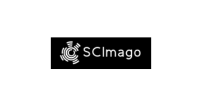EXOGENOUS ENZYMES AND PELLETING INCREASE DIET DIGESTIBILITY OF PIGLETS
DOI:
https://doi.org/10.5380/avs.v25i1.68274Palavras-chave:
additives, enzyme complex, piglets, processingResumo
In view of the need to increase food production to meet growing world demand, technologies must be developed to improve the performance of animals for human consumption. In this sense, studies with enzymes inclusion and feed processing have been done in order to improve food efficiency and, consequently, the animal production result. In order to verify the digestibility of complex commercial diets in the pre-initial stage of piglets submitted to the inclusion of an enzymes mixture and or pelletizing, were used 24 castrated male pigs with average age of 35 days and mean weight of 8 kg. The animals were individually housed in metabolism cages and submitted to four treatments: mash diet, mash diet with enzymes, pelleted diet and pelleted diet with addition of the enzyme mixture. After adaptation of the piglets to the diets for seven days, feces were collected for five days for the digestibility trials. The collection method was total collection of feces. There was interaction for digestible energy, crude protein, dry matter and ether extract (P>0.05). Pelleting and inclusion of the enzymatic complex allowed an increase in the coefficient of digestibility in all evaluated parameters (P<0.05). Therefore, the enzyme mixture tested and the pelleting can be used as artifice to increase the digestibility of commercial diets for piglets in the pre-initial phase.
Downloads
Publicado
Como Citar
Edição
Seção
Licença
Autores que publicam nesta revista concordam com os seguintes termos:
- Autores mantém os direitos autorais e concedem à revista o direito de primeira publicação, com o trabalho simultaneamente licenciado sob a Creative Commons - Atribuição 4.0 Internacional que permite o compartilhamento do trabalho com reconhecimento da autoria e publicação inicial nesta revista.
- Autores têm autorização para assumir contratos adicionais separadamente, para distribuição não-exclusiva da versão do trabalho publicada nesta revista (ex.: publicar em repositório institucional ou como capítulo de livro), com reconhecimento de autoria e publicação inicial nesta revista.
- Autores têm permissão e são estimulados a publicar e distribuir seu trabalho online (ex.: em repositórios institucionais ou na sua página pessoal) a qualquer ponto antes ou durante o processo editorial, já que isso pode gerar alterações produtivas, bem como aumentar o impacto e a citação do trabalho publicado.













